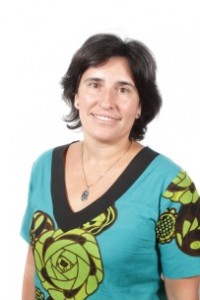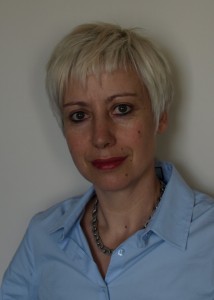1. Joint Healthcare Waste and Resources Research Group and ISWA International conference (sponsored by Grundon Waste Management)
In conjunction with the International Solid Waste Association (ISWA), the Group will be hosting an international conference on April 14 and 15, 2016. It will be held at St Thomas’ Hospital in London.
One of the speakers will be Eulàlia Martorell. Eulàlia is the International Coordinator in the company ANTONIO MATACHANA, S.A. based in Barcelona – Spain, where she is responsible for the supervision of projects worldwide including the healthcare waste treatment plants for sterilisation.
She studied chemistry at the University of Barcelona and obtained her degree in Organic Chemistry. Afterwards, she was granted a degree in Environmental Impact Assessment also by the University of Barcelona.
She started her career in the company POLYRECICLADOS S.A. implementing a quality system according to ISO 9001 and standardising the procedures through which plastic proceeding from agriculture was recycled into waste bags. In 1995, she joined the company MATACHANA where she has taken increasing responsibilities within the technical and commercial areas while working in projects worldwide.
The full programme can be found here: Programme – April 2016
Sponsors include: Daniels, Econix, GV Health, Frontier Medical Group, Newster, Sharpsmart, Cloud Sustainability, SRCL and ISS Ltd.
Booking details can be found at: healthcare waste 2016 conference
2. Questionnaire on draft training standards in HCWM
The NHS Confederation and the NHS European Office have become partners in a 3-year European-wide project to develop a new healthcare waste management qualification framework and e-learning platform.
The new qualification framework will enable the EU workforce in the waste management sector to gain a standardised set of skills, regardless of the member state in which they undertake the vocational training programme, leading to greater mobility for these workers within the EU.
Over the last year the project partners have “compared and contrasted” the existing training and curricula across a range of countries, developed a set of draft vocational training units based on common standards and aligned with the European Qualifications Framework, and are now developing training modules which will deliver the required qualification. The NHS National Performance Advisory Group (NPAG) Waste Management Group has been used as a “reference” or “benchmarking” group to quality assure the materials being developed.
View the questionnaire associated with the draft units: here
3. New premises registration guidance
From 1 April 2016, premises will no longer need to register as hazardous waste producers. This change will affect the entire hazardous waste control system. New guidance has been published to reflect this.
See the guidance here
4. New workers 4x more likely to have an accident
A recent Health and Safety Authority/ESRI study of workplace accidents showed that workers are four times more likely to suffer a workplace accident in the first six months of a new job. The research was based on workplace injury and illness figures from the CSO over a 12 year period (2001 – 2012). The study found that new workers were at much higher risk due to a lack of training and supervision, a reluctance to question instructions, a lack of safety knowledge and increased workload.
The risk of injury decreases with age and experience due to lower risk-taking and a reduction in the involvement of manual tasks.
Read the story here

